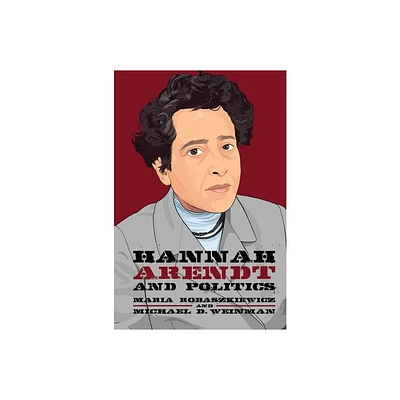Home
Hannah Arendt And The Jewish Question
Loading Inventory...
Barnes and Noble
Hannah Arendt And The Jewish Question
Current price: $40.00


Barnes and Noble
Hannah Arendt And The Jewish Question
Current price: $40.00
Loading Inventory...
Size: OS
*Product Information may vary - to confirm product availability, pricing, and additional information please contact Barnes and Noble
Hannah Arendt (1906-1975) was one of the most original and interesting political thinkers of the twentieth century. In this new interpretation of her career, philosopher Richard Bernstein situates Arendt historically as an engaged Jewish intellectual and explores the range of her thinking from the perspective of her continuing confrontation with "the Jewish question."Bernstein argues that many themes that emerged in the course of Arendt's attempts to understand specifically Jewish issues shaped her thinking about politics in general and the life of the mind. By exploring pivotal events of her life story her arrest and subsequent emigration from Germany in 1933, her precarious existence in Paris as a stateless Jew working for Zionist organizations, her internment at Gurs and her subsequent escape, and finally her flight from Europe in 1941 he shows how personal experiences and her responses to them oriented her thinking. Arendt's analysis of the Jews' lack of preparation for the vicious political antiSemitism that arose in the last decade of the nineteenth century, Bernstein argues, led her on a quest for the ultimate meaning of politics and political responsibility. Moreover, he points out that Arendt's deepest insights about politics emerged from her reflections on statelessness and totalitarian domination. Bernstein also examines Arendt's attraction to and break with Zionism, and the reasons for her critical stance toward a Jewish sovereign state. He then turns to the issue that, in Arendt's opinion, needed most to be confronted in the aftermath of World War II: the fundamental nature of evil. He traces the nuances of her thinking from "radical evil" to "the banality of evil" and, finally, reexamines Eichmann in Jerusalem, her meditation on evil that caused a storm of protest and led some to question her loyalty to the Jewish people.


















